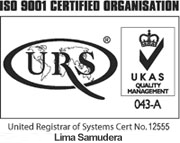 Latest shipping news
Latest shipping news
Hutchison Ports again contributes to Barcelona port's expansion
LAST week BEST container terminal at the Port of Barcelona has taken delivery of 14 new automated cranes (ASC) from the Finnish supplier Konecranes.
These new automated cranes will allow the terminal to increase its storage capacity by 25 per cent in the coming months, from 27 to 34 automated blocks.
They will be assembled and tested in the coming weeks and the first new block is expected to be fully operational in September, with the seventh to follow in early 2025.
These cranes are electric and rail-mounted, like most of the terminal's equipment, as the Hutchison Ports Group has been committed from the outset to building an efficient and environmentally sustainable terminal in the Port of Barcelona.
Guillermo Belcastro, CEO of Hutchison Ports BEST, stated that "This new investment will result in an increase in the terminal's operational and storage capacity and will contribute to the continuous improvement of the quality of service in both maritime and inland operations."
BEST currently has 13 Super Post-Panamax quay cranes, capable of operating the world's largest ships, 54 automated cranes (ASC), 2 cranes at the rail terminal (RMG) and 40 Shuttle Carriers to operate the terminal which occupies 80 hectares and has a berth of 1,500 metres with a depth of 16.5 metres.
Samudera Shipping H1 profit down 68.7pc to US$20.9 million
SAMUDERA Shipping (S56) reported a 68.7 per cent drop in net profit to US$20.9 million for the first half ending June 30, compared to US$66.7 million in the same period last year, reports Singapore's Business Times.
Revenue decreased 27.1 per cent to $223 million, the company announced on Monday (July 29).
Container volume for the first half stood at 879,000 TEU, down from 901,000 TEU in the first half of 2023.
The company noted that contributions from the container segment were lower and the outlook for the container shipping industry remains challenging.
"Amid continued port congestion and disruptions to vessel schedules in the region, liners continued to bypass the conflict in the Red Sea," said Samudera Shipping.
Cyber attacks on shipping rise geopolitical tensions rise
THE shipping industry is experiencing a sharp increase in cyber attacks as geopolitical disputes lead state-linked hackers to target trade flows, reports London's Financial Times.
Shipowners, ports, and other maritime entities encountered at least 64 cyber incidents in 2023, according to researchers at the Netherlands' NHL Stenden University of Applied Sciences.
In comparison, there were only three incidents a decade earlier and none in 2003.
Data from the university, which trains mariners, indicates that over 80 per cent of identified incidents since 2001, where the attacker is known, originated from Russia, China, North Korea or Iran.
Cost of NZ exports rises due to ongoing Red Sea crisis.
A REPORT from the New Zealand Ministry of Foreign Affairs and Trade said global shipping rates have nearly doubled since late April, yet remain far below the peak reached during the Covid scare, reported Radio New Zealand.
"The main reason is the current disruption in the Red Sea, which has stretched global shipping capacity, with more shipping needed to service European and Asian routes," the report said.
"Since December, there has been a 50 per cent fall in shipping traffic navigating the Suez Canal, offset by a 70 per cent jump in sailings around the less direct Cape
Yemen's Houthi forces began attacking ships in the Red Sea in October last year after the start of the Israel-Hamas war.
Export NZ executive director Joshua Tan said the cost increase created a lot of uncertainty for exporters, as not all costs could be passed on.
"They've got to make that tough decision themselves whether they are able to pass on their cost, but at the same time, we're conscious that there is weakened demand," Mr Tan said.
"They're facing the same issues as exporters are in terms of high interest rates, increased costs, so businesses do have to think again before passing on those inflated shipping costs."
Mr Tan said exporters were concerned because it was not clear how long the issues in the Red Sea would continue for.
"There's a sense of nervousness, but exporters became a lot more resilient during Covid because they had to find workarounds, so I'm sure they'll be using that resilience for the issues facing them at the moment."
Sarah McCormack, chief executive of fresh fruit exporter Te Mata Exports, said getting apples to Europe had been difficult due to the extended travel time.
"We've had to ship around Africa to get to Europe, which means it's a very long transit time for apples and more expensive as well, so it's been a little bit challenging."
Meat Industry Association chief executive Sirma Karapeeva said increased shipping costs were hitting meat companies in the pocket.
"I think the geopolitical uncertainty in some of the shipping lanes, uncertainty and disruption that we've seen through the Suez Canal, the Panama Canal and the likes have just added additional complexity and cost to getting our product to market," said Ms Karapeeva.
"So it's not something that we can control directly, but it's certainly something that the companies are very mindful of and it is taking a bite off the profit line," she said.




